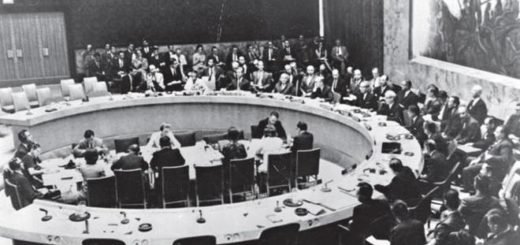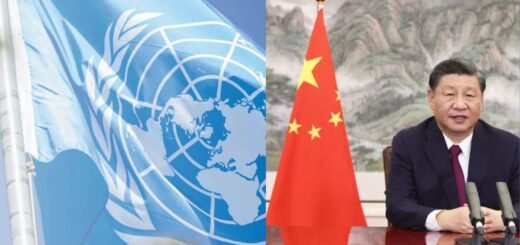UN Peace Operations-Hostage Taking of Peacekeepers: A Report

On the 29th of June 2021 United Service Institution (USI) and ICWA had organized a webinar on the topic, UN Peace Operations: Hostage-Taking of Peacekeepers. The session was graced by an array of well-informed speakers who have had the first-hand experience of the hostage crisis while in service either as Indian Ambassadors or as part of the UN Peacekeeping Program.
With a brief introduction of the event by Maj. General PK Goswami (Retd.), Director USI, where he introduced the audience to the distinguished list of speakers.
Starting with the opening remarks of Dr TCA Raghavan, in which he talked about the rise in intra-state conflict and its challenges about how the dispute between groups within the state can be much difficult to negotiate for than one when the Peacekeepers have to deal with two nations. Now this, according to the Major reflects the work of Peacekeepers as a specialized one as it involves negotiations, non-use of force, working within the UN, and saving the lives of the innocent. Although, as per Major’s view even today the Peacekeepers need to show more and higher levels of professionalism in their job.
This was followed by Ambassador Dinkar Srivastava’s oration on the topic Overview of the hostage crisis, its implications, and tenets of rescue strategy, where he emphasized on the three key principles of the UN Peacekeeping body that are — Consent of parties; impartiality; and non-use of force, and the onerous task as the Peacekeepers face with the issue of the mandate of the countries and the parties in conflict, and the problem of lack of resources that are often a hindrance for carrying out further Peacekeeping operations.
Apart from this, he specified the fact how regional centres of UN Peacekeeping have further strengthened their idea and the need of setting up many more such centres. As in the post-Cold War world order with the shifts and turns in the power structures of the world, there has been a rise in these inter and intra- state conflicts and therefore the rising role of the Peacekeepers. Though there are no provisions in the UN Charter that specify Peacekeeping.
The next speaker of the day, Col. (Dr.) K.K Sharma (Retd.), Former Military Observer UNTAC, in his address on ‘Emerging trends in hostage-taking of peacekeepers and existing security policies’ discussed the various hostage crisis such as that of Bosnia, Sierra Leone, Rwanda, and Syria. In his presentation, he further emphasized the causes of hostage situation taking – such as the disparity between the two parties and also the political narrative, religious interpretation, and socio-economic realities often lead to a situation of a dispute between the groups. These are the two major factors why the Colonel perhaps pressed on the fact that every situation requires a different line of action. These situations further lead to conflict between the Peacekeepers and the warring groups which leads to social upheavals as the UN becomes less effective in hindering the violence and often the principles of the UN get compromised during the process. These dire situations of tension have shown how these Peacemakers have been used as human shields and have been taken, hostage.
The trends of hostage-taking conditions show that resource control and the need to negotiate better by the Peacemakers party is important. The release of Peacekeepers in exchange for the troopers is one of the main mediating points. He also referred to the Carlos report and one of the recommendations that he gave was that one should go in their full capacity and maximum force rather than going weak as it doesn’t lead to any positive outcomes.
Lt. General VK Jetley (Retd.) Former Force Commander (UNAMSIL)
in his address on ‘Strategy and Challenges of hostage rescue when peacekeepers from larger TCCs are taken hostage (UNAMSIL)’ overviewed and covered a wide stance. He brought out his individual experience in terms of the abduction of UNPC soldiers in Sierra Leone.
He spoke about how Operation Khukri would not have been possible without getting the 21 disarmed troops released. It was only after these troops were released that Operation Khukri could be launched. A major role to play in the release of these troops was of the late Dorothy Musuleng-Cooper, who negotiated with the rebels. It was also discussed in Lt. General VK Jetley’s address as to how ECOMOG had pulled out of Sierra Leone, and UNAMSIL with a force level of merely 6000 was expected to discharge the mandate of ECOMOG, which had a core strength of 15000 and its mandate. To top it all off, in the middle of this situation, the Peace Accord broke down. So, what was ideally supposed to be a Peace Keeping mission turned into a Peace Enforcement mission, and that requires a very different force level which was sanctioned too little too late.
The list of these august speakers doesn’t stop here as the fourth Speaker Lt. General I.S Singha (Retd.) the former Head of Mission & Force Commander (UNDOF) of the peacekeeping Mission at Golan Heights between Syria and Israel elaborated on the topic through his experiences of the Hostage-taking in small TCCs. He talked of how he ensured the safe release of 180 peacekeepers abducted by armed groups over two years. He carried out negotiations, mediation, and liaison between parties to ensure the state of peace in the region.
Lt. General Singha shares his experiences in the region by first familiarizing us with the geography of the UN Observers Zone in Golan Heights– a buffer zone about 80 km long, and between 0.5 and 10 km wide, forming an area of 235 km2. The zone straddles the Truce Line and separates the Israeli-occupied portion of the Golan Heights and the rest of Syria. The area is guarded by the UN troops, whose main mission is to ensure that the ceasefire between Israel and Syria remains intact. He recalls that hostage-taking in this region started when the Armed Opposition Groups (AOG) in Syria found this buffer zone in the South West of the country to be the safest area in the region. A total of 180 UNPC troops were taken hostage in 10 major incidents during Lt. General Singha’s posting in the field. Each incident of hostage-taking came with a lesson.
The major lessons the distinguished speaker learned during his time in the Golan Heights was that – (i) having allies in the area are essential, (ii) A multi-pronged approach is needed to avoid future incidents of hostage-taking. (iii) there are no one-time solutions to these problems and aggressions. The strategy each time is supposed to be different. (iv) it is not always necessary to use force. Sometimes, the threat of the use of force is enough to get the job done.
Lt. Gen. Singha assumes there could’ve been a few reasons as to why his soldiers were being taken hostage by the AOGs– (i) The AOGs thought the UNPC was assisting the Syrian troops. (ii) Syrian forces (SAF) had a heavy hand over them and the rebels thought that as long as the troops are with them, there would be a ceasefire. (iii) AOGs wanted to be recognized by ISIS to get more funding for their operations. (iv) AOGs wanted to take the hostages as a means of leverage to release the rebel group’s leader’s brother out of jail. (v) For quid pro quo, to get other prisoners released.
Since the Golan Heights Mission was an Observer Mission of merely 1000 soldiers, it wasn’t loaded with a weapon-rich armoury. They only had some light weapons. So, capacity building was necessary to ensure the security of the UNPC troops. However, the mission was grateful enough to receive whatever it asked for from the UN, during Lt. General Singha’s the mission capacity was increased from 1000 soldiers to 1299 soldiers in 3-4 months. A political advisor was also posted in the region.
At the end of his speech, General Singha briefly highlighted the importance of certain negotiation tips such as – (i) Mutual respect for all parties, (ii) Knowledge of geography and demographics of the area you’re dealing with. some negotiation tips he used while on the field. He also brushed upon the indispensable need for Psychological First Aid and counselling to manage PTSD in soldiers, and journalists/ reports whom the opposition abducts.
Concluding remarks
Major General P.K. Goswami, in the closing remarks for the seminar, extended his compliments to all the speakers and thanked Ambassador Srivastava for giving his point of view on the various hostage crises. He briefly mentioned what each speaker had spoken about and gave his views regarding UN Peacekeeping Missions and Hostage Crises in general.
He spoke about how the freeing of hostages from captors has multiple challenges, and hence analysis from past hostage incidents is important to draw lessons for the prevention of such future ones. Since the tragic bombing of the UNHQ in Iraq in 2003, efforts have been made for strengthening the security of UN Peacekeepers. However, a lot of times, security issues are viewed as technical matters and are not prioritized strategically or politically as important. The increasing volatile environment in which the UNPC is deployed today, and the demanding task of fulfilling the UN mandate requires immediate and serious consideration of security issues.
This is the time to take talks on the following issues for the safety and security of persons on various UN operations:
1. Selection of appropriate resources by the UNSC for the mandate it is trying to accomplish.
2. Approval of adequate budgetary support by UNGA.
3. Troop control and Police control countries are timely enabled and sensitized on issues of concern as considered and recommended by the Special Committee of Peace Operations.
4. To proactively plan and manage security issues.
5. Full support to mission leadership.
6. Building confidence among personnel serving and UN and reminding them that the UN values their service and has responsibility for their care.
All in all this lecture cum webinar tabled wide perspectives of the hostage situations and gave insight to the audience to understand and draw a further analysis of it.


















